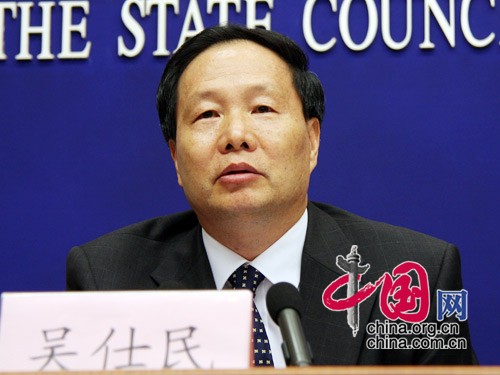The real purpose of the July 5 rioters in Urumqi, capital of west China's Xinjiang Uygur Autonomous Region, was "Xinjiang's independence", an official said Tuesday in Beijing.
Wu Shimin, vice minister in charge of the State Ethnic Affairs Commission (SEAC), told a press conference held by the State Council Information Office that the rioters' purpose "would never be realized".

"However, we will continue to meet the reasonable demands of all ethnic groups in Xinjiang and other regions to help them solve problems," he said.
The violence in Urumqi had left 197 people dead and more than 1,600 injured. The homes of 633 families were damaged and 627 vehicles were smashed and torched.
Wu told reporters that the causes of the riot had nothing to do with "any religion", China's ethnic polices or relations between ethnic groups.
"The incident was schemed and fabricated by the 'three forces' of extremism, separatism and terrorism both at home and abroad," he said. "None of the clergy in Xinjiang mosques were involved."
He said the government applied a uniform ethnic policy in all ethnic minority areas and the fact the riot only occurred in Urumqi proved it had nothing to do with the national ethnic policies.
"Increasing exchanges between different ethnic groups and the differences in language, customs and religions have indeed caused some conflicts and frictions," Wu said. "But the problems have been solved in quite timely and appropriate ways."
He also promised no restrictions on promoting officials from ethnic minorities because of the riot in Urumqi.
The government regarded officials from ethnic minorities as an important force to develop ethnic regions and maintain ethnic harmony, Wu said. "In face of the July 5 riot, officials from ethnic minority groups in Xinjiang firmly stood with the state and people."
In all of the country's five autonomous regions, 30 autonomous prefectures and 120 autonomous counties, the administrative chief was always from an ethnic minority, he said. "We also take in as many ethnic officials as possible in government departments of these areas."
With more ethnic minority officials, the government expected all ethnic groups to take part in governance and to exercise their rights, he said.
People from ethnic minorities generally faced the same requirements as Han counterparts in seeking civil service posts, but those who applied to work at the department of ethnic affairs would be preferred, he said.
(Xinhua News Agency July 21, 2009)